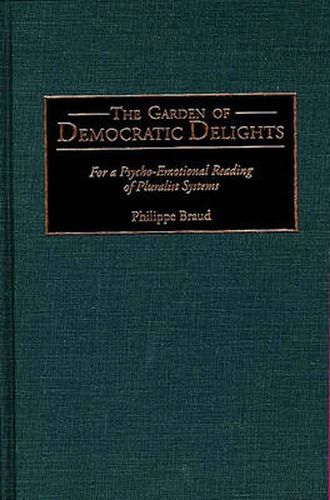Readings Newsletter
Become a Readings Member to make your shopping experience even easier.
Sign in or sign up for free!
You’re not far away from qualifying for FREE standard shipping within Australia
You’ve qualified for FREE standard shipping within Australia
The cart is loading…






Pluralist democratic systems, according to Phillipe Braud, do not do what they claim to do, but rather, serve to channel, diffuse, or reconcile society’s conflicts. As one reviewer of the original French edition notes, the book can be seen as part of a long tradition in European political thought that sees democracy as a front for capitalism. Braud asserts that pluralist democracy is credible only because of the complete failure of communism. There is no government by the people; the rule of law is a tautology. What fundamental changes occur happen because of the forces of economics, culture, and labor, and in response to political direction. The efficacy of democracy comes from its ability to manage social emotions, specifically by addressing anguish with promises of security and identity: by meeting the need to be wooed and seduced by constant personalization of politics, offering the illusion of choice; by transposing the frustrations of gender, age, and class inequalities into the political domain; by providing pleasure in the game of politics; and by promising greed, power, and its prerequisites. Pluralist democracies know best how to manage these emotions, and how to use them without suffocating them. A powerful and disturbing vison of pluralist democracy that will be of great interest to students and scholars of contemporary political thought.
$9.00 standard shipping within Australia
FREE standard shipping within Australia for orders over $100.00
Express & International shipping calculated at checkout
Pluralist democratic systems, according to Phillipe Braud, do not do what they claim to do, but rather, serve to channel, diffuse, or reconcile society’s conflicts. As one reviewer of the original French edition notes, the book can be seen as part of a long tradition in European political thought that sees democracy as a front for capitalism. Braud asserts that pluralist democracy is credible only because of the complete failure of communism. There is no government by the people; the rule of law is a tautology. What fundamental changes occur happen because of the forces of economics, culture, and labor, and in response to political direction. The efficacy of democracy comes from its ability to manage social emotions, specifically by addressing anguish with promises of security and identity: by meeting the need to be wooed and seduced by constant personalization of politics, offering the illusion of choice; by transposing the frustrations of gender, age, and class inequalities into the political domain; by providing pleasure in the game of politics; and by promising greed, power, and its prerequisites. Pluralist democracies know best how to manage these emotions, and how to use them without suffocating them. A powerful and disturbing vison of pluralist democracy that will be of great interest to students and scholars of contemporary political thought.